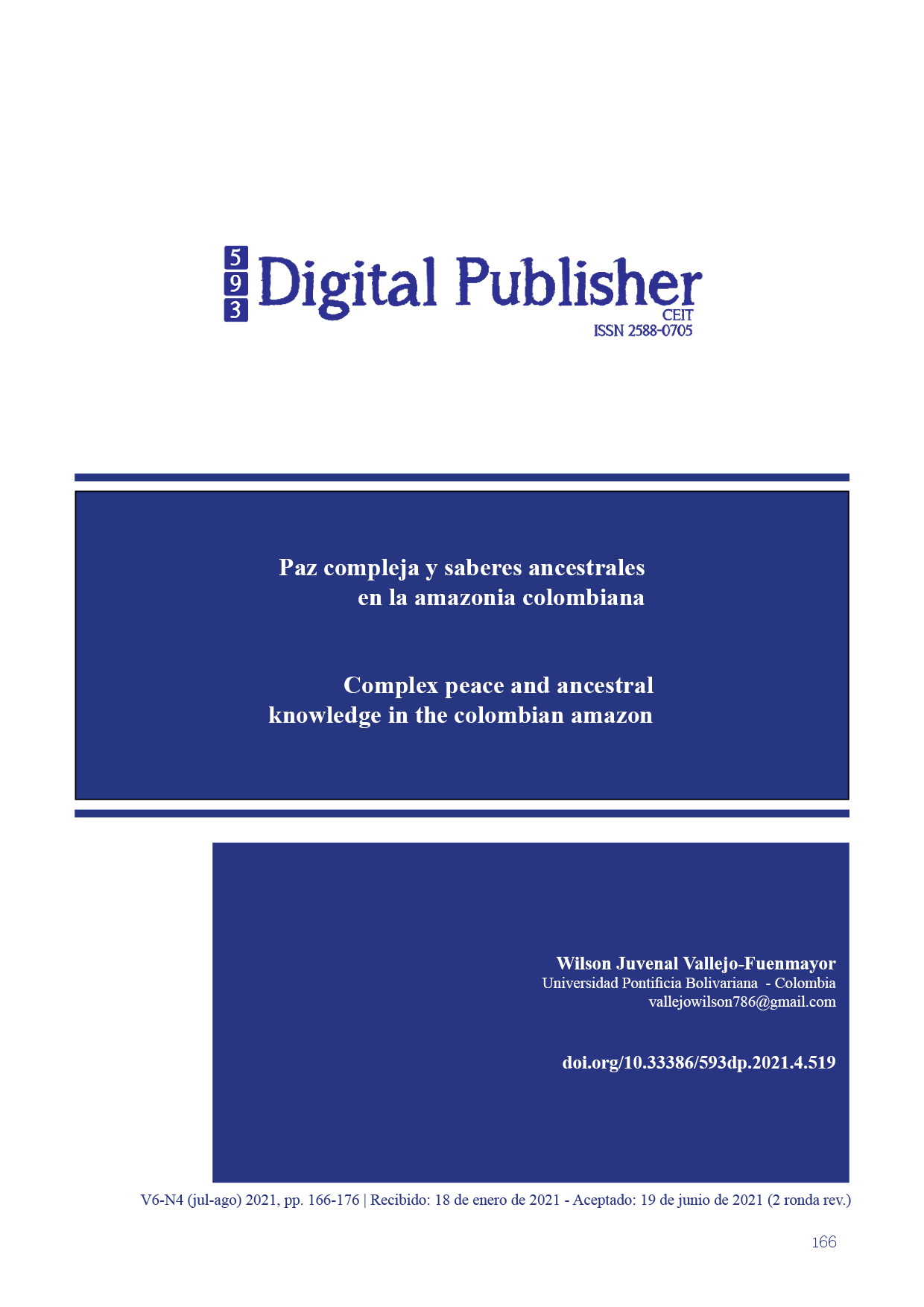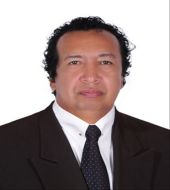Complex peace and ancestral knowledge in the colombian amazon
Main Article Content
Abstract
When one speaks of peace in the Colombian Amazon, acts of violence, death and subjugation of centuries come back to life; from the rubber bonanzas to those experienced today with coca, oil and mining that destroy Mother Earth, displace and sow, in their wake, desolation and death.
In ancestral peoples, their daily struggles to survive motivate resistance and in their cultural knowledge; ignored, denied and made invisible by the hegemonic power, they sustain their identity; which millenary treasures amassed in the traditional experience of communicating and sharing in the chagra, the tulpa, the maloca, in the mambeo; in artisan weaving or the carnival of forgiveness (Big Day); where thoughts for the good life are mingan. The heroic ability to resist and rise from the ashes is admirable; their voice is not silenced to bravely demand their rights to the territory, respect for their dignity and to live in peace.
It is noteworthy that representatives of Complex Thinking denounce the historical epistemicide of alternative knowledge of cultures and raise awareness of the importance of making them visible, recognizing their ancestral wisdom, worth teaching, in a globalized society that has lost the compass of its walk by reducing its aspirations to economic ends and irrational consumption inevitably rushing to self-destruction.
The task from the educational processes is to build bridges of encounter between the scientific knowledge and the cultural knowledge of the invisible, stigmatized peoples; in order to recognize differences, in cooperation and solidarity to weave peace.
Downloads
Article Details

This work is licensed under a Creative Commons Attribution-NonCommercial-ShareAlike 4.0 International License.
1. Derechos de autor
Las obras que se publican en 593 Digital Publisher CEIT están sujetas a los siguientes términos:
1.1. 593 Digital Publisher CEIT, conserva los derechos patrimoniales (copyright) de las obras publicadas, favorece y permite la reutilización de las mismas bajo la licencia Licencia Creative Commons 4.0 de Reconocimiento-NoComercial-CompartirIgual 4.0, por lo cual se pueden copiar, usar, difundir, transmitir y exponer públicamente, siempre que:
1.1.a. Se cite la autoría y fuente original de su publicación (revista, editorial, URL).
1.1.b. No se usen para fines comerciales u onerosos.
1.1.c. Se mencione la existencia y especificaciones de esta licencia de uso.
References
Morales Pujimuy Luis Alberto. (2019) Bëtsknaté – Día Grande, propuesta de paz, perdón y reconciliación para el departamento del Putumayo. Bogotá. UNAL.
Morin, Edgar. Festival de Incertidumbres 2020. Publicado el día 21 de abril de 2020 en la serie Tracts de crise de ediciones Gallimard con el número 54. (https://tracts.gallimard.fr/fr/ products/tracts-decrise-n-54-un-festival-d-incertitudes)
Morin Edgar (1999) Los siete saberes necesarios para la educación del futuro. París. UNESCO
Paladini, B. (2011). Construcción de paz, transformación de conflictos y enfoques de sensibilidad a los contextos conflictivos. Bogotá. UNAL
Papa Francisco (2020) Querida Amazonía. Roma. Ediciones Vaticano.
Santos, Boaventura de Sousa (2006). Renovar la teoría crítica y reinventar la emancipación social. Buenos Aires. CLACSO.
Santos, B de S (2006a). Conocer desde el Sur. Para una cultura política emancipatoria. Lima, Fondo Editorial de la Facultad de Ciencias Sociales, UNMSM, Programa de Estudios sobre Democracia y Transformación Global
Sotolongo. Pedro Luis y Delgado Díaz Carlos Jesús. (2006) La revolución contemporánea del saber y la complejidad social: Hacia unas ciencias sociales de nuevo tipo. Buenos Aires. CLACSO.


